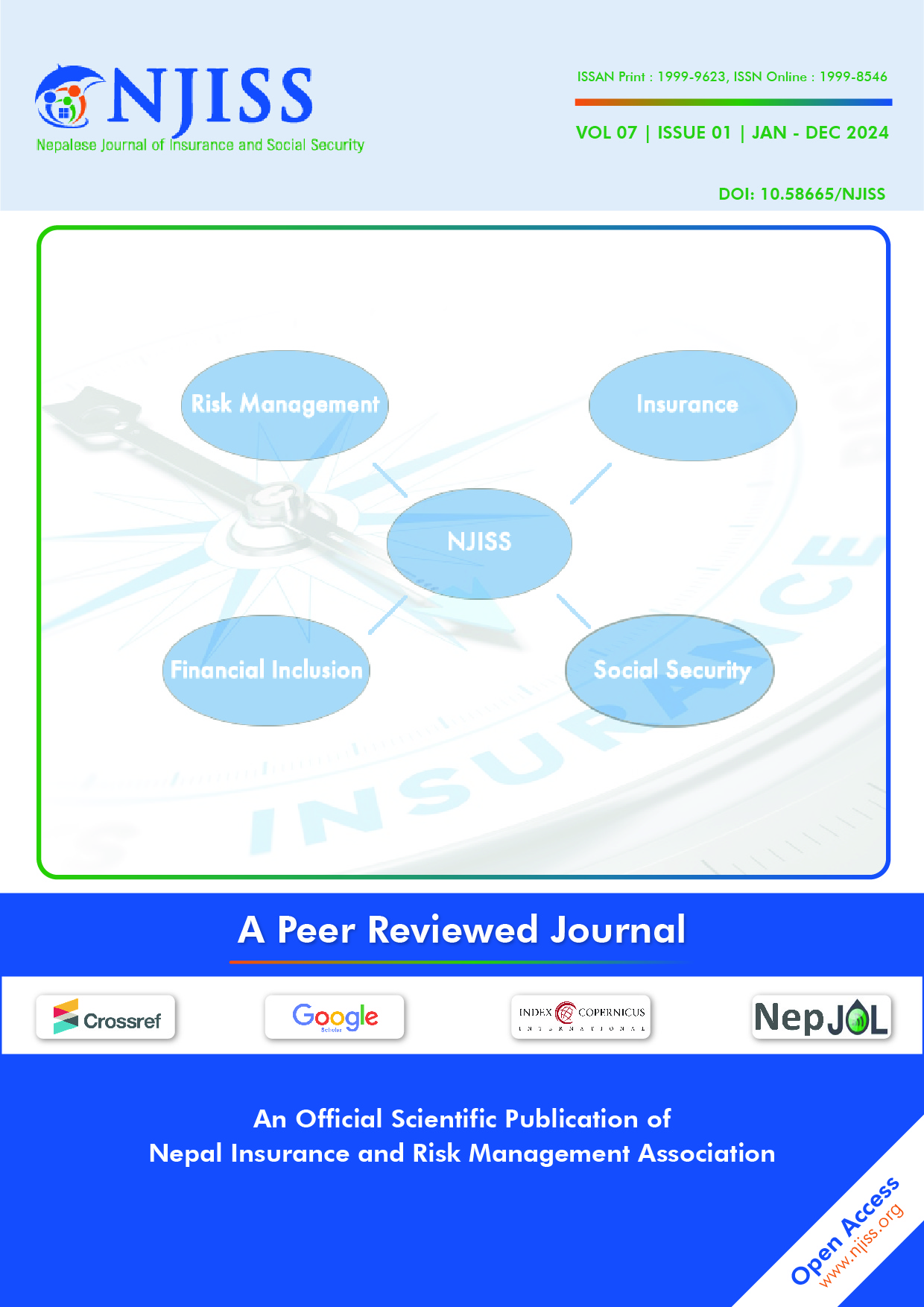Perceptions and Coping Strategies: A Study on Work Life Balance Among Male Civil Engineers in Nepal
Keywords:
Coping mechanism, civil engineers, perceptions, work life balanceAbstract
Purpose: This study investigates how male civil engineers in Nepal perceive work-life balance and identifies the coping strategies they employ to manage the demands of their profession.
Design/methodology/approach: This study utilized a qualitative research approach within the interpretivist paradigm, employing Heidegger’s interpretative phenomenology to explore male civil engineers’ lived experiences with work-life balance. Data were gathered through semi-structured, face-to-face interviews with ten experienced engineers in Kathmandu Valley, focusing on their professional and personal challenges. The analysis followed Benner’s four-step process, and thematized using MAXQDA.
Findings: The study highlights that male civil engineers in Nepal achieve work-life balance through a multifaceted approach that encompasses effective management of professional and personal responsibilities and the development of a personal balance philosophy, while addressing challenges from site supervision and project deadlines. Essential coping strategies include utilizing family support, managing time efficiently, prioritizing tasks, mitigating stress, and engaging in task crafting, reinforcing the importance of a dynamic and proactive approach to balance.
Conclusions: This study highlights that achieving work-life balance is vital for male civil engineers in Nepal, emphasizing that effective time management and robust family support are essential coping strategies; it also highlights the need for organizations to adopt adaptive HR policies and promote job crafting to address the evolving challenges of engineering responsibilities.
Implications: This study highlights the necessity for adaptable theoretical frameworks that reflect the evolving, individualized approaches to work-life balance among male civil engineers. It advocates for organizations and policymakers to implement
comprehensive strategies addressing on-site demands, project deadlines, and family support, in order to create flexible work environments and supportive policies that boost employee satisfaction and resilience.
JEL Classification: J24, J28, M54
Downloads
Downloads
Published
How to Cite
Issue
Section
License
Copyright © Nepal Insurance and Risk Management Association

The articles in NJISS are licensed under a Creative Commons Attribution-NonCommercial 4.0 International License. This CC BY-NC license allows reusers to distribute, remix, adapt, and build upon the material in any medium or format for noncommercial purposes only, and only so long as attribution is given to the creator.
It includes the following elements:
BY - Credit must be given to the creator (authors)
NC - Only noncommercial uses of the work are permitted.

